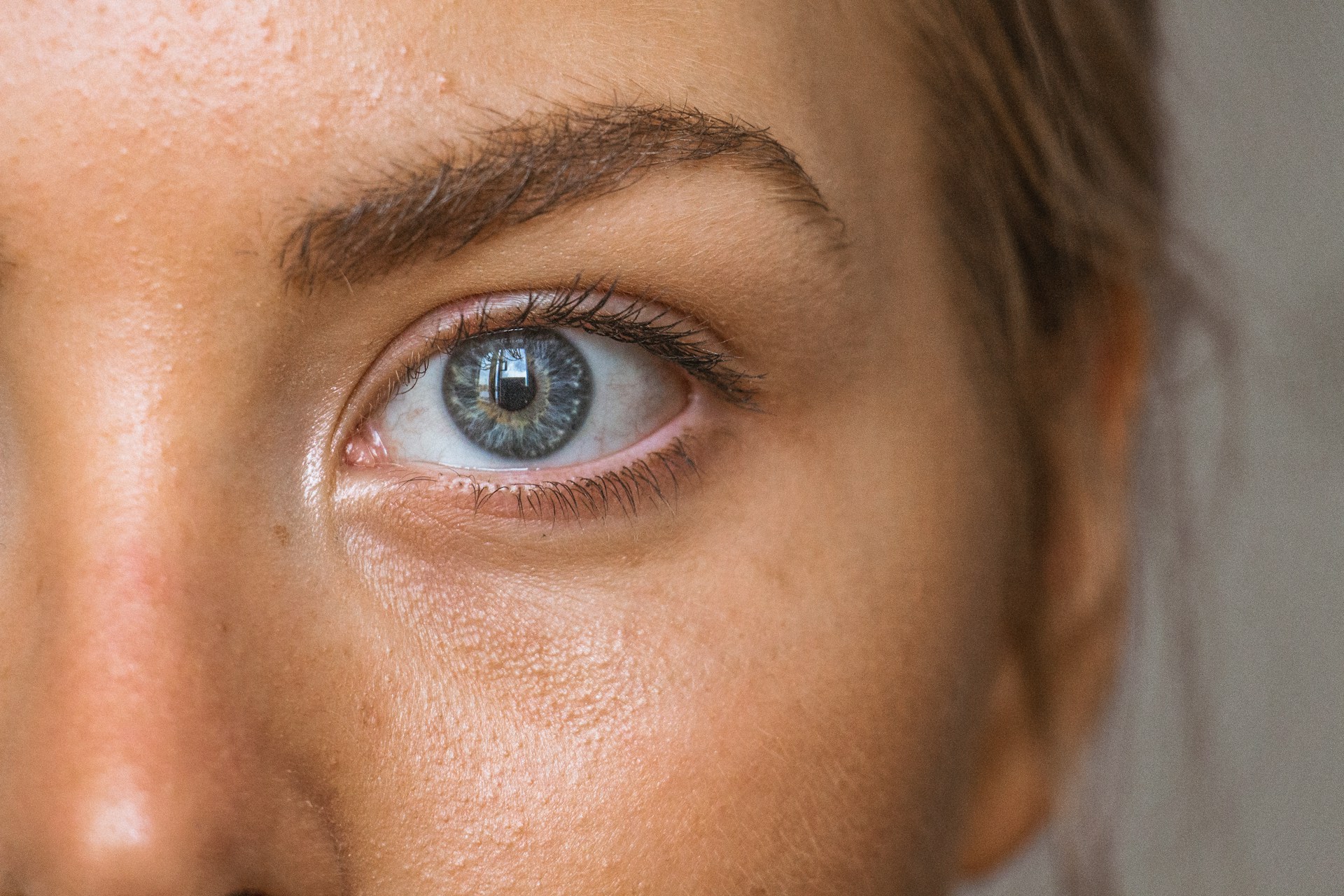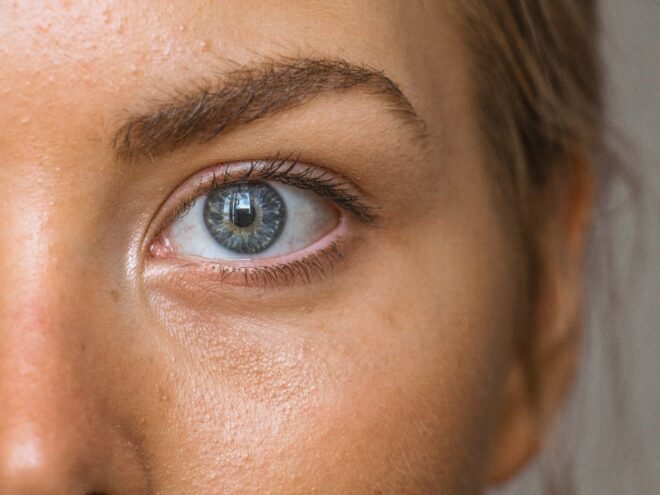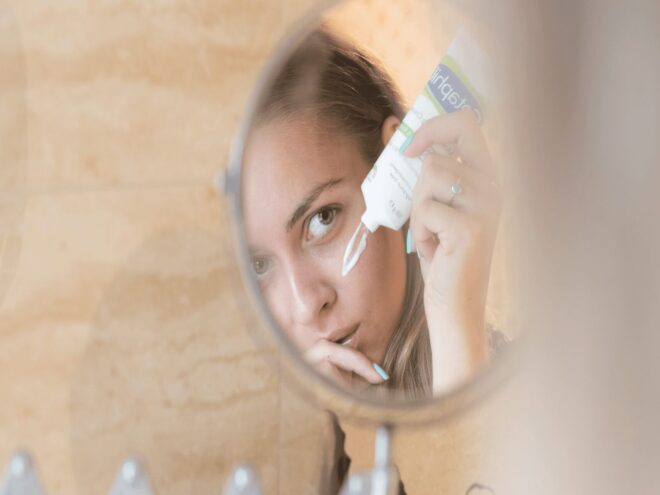Wellness • 04/26/2024
What Are Peptides in Skincare (and 8 Other Ingredients You Should Know)

Revivalist is a reader-supported endeavor and our posts may contain affiliate links. When you buy through links on our site, we may earn an affiliate commission.
Reading the ingredients in the department store beauty aisle can leave you scratching your head. What are peptides in skincare? For that matter, what’s hyaluronic acid, that ingredient commercials love to pronounce but never explain? What do these substances do for your complexion, and which ones are right for your unique face?
Fortunately, you don’t need a degree in advanced chemistry to decipher the labels. A little education does the trick. Here’s the answer to what peptides are in skincare and eight other ingredients you’ll likely meet in the beauty department.
What Are Peptides in Skincare?
Peptides in skincare are short-chain amino acids that act as building blocks for collagen, elastin and keratin, proteins that your skin needs to maintain health. Adding them to your daily slather regimen stimulates collagen production to reduce fine lines and wrinkles.
Do they work? Research reveals that peptides demonstrate anti-inflammatory activity, helping reduce puffiness and redness. Beyond that, it helps to know the four types of peptides, as they each have unique bioactive properties:
- Signal peptides prevent aging by stimulating fibroblasts, leading to increased production of collagen, elastin, fibronectin, glycosaminoglycan and proteoglycan, substances that increase skin health and elasticity.
- Carrier peptides assist in wound healing by driving healing enzymes to injury sites.
- Neurotransmitter-inhibitory peptides work like Botox to inhibit the muscle contractions that lead to wrinkles.
- Enzyme-inhibitory peptides inhibit the enzymes that break down collagen.
As you can see, peptides improve your skin’s health in many crucial ways. As a bonus, they work even better when combined with certain other ingredients, such as hyaluronic acid — more on that wonder ingredient later.
The best peptide creams contain a blend of all four types to supercharge your beauty results. Speak with your dermatologist for a personalized recommendation, or try one of these highly-rated brands that have proven their effectiveness in others:
- Lancome Renergie HPN 300-Peptide Cream features over 300 peptides, as the label suggests.
- Olay Regenerist Collagen Peptide 24 Hydrating Moisturizer, a rich, creamy formula with niacinamides.
- Danessa Myricks Beauty Yummy Skin Soothing Serum, a vegan formula that doubles as a tint foundation with peptides and ceramides.
8 Other Common Skincare Ingredients You Should Know
Peptides are only one of the beauty ingredients science has uncovered in recent years. Here are eight others you should understand. Knowing what to look for saves you money from buying expensive creams that won’t work for your skin type. Finding the right ingredients for you allows you to move between brands, substituting alternatives if your favorite brand is out of stock or they (gasp!) discontinue a line you love.
1. Hyaluronic Acid
Yin yoga aficionados might recognize hyaluronic acid as a natural glycosaminoglycan your body produces to lubricate your joints. However, it doesn’t only ease creakiness in your knees and hips. It’s also part of your skin’s essential structure, supporting a plump, youthful and supple look.
What’s amazing about this substance is that you can use it to boost your beauty inside and out. Taking an internal hyaluronic acid supplement improved skin hydration and epidermal thickness in both young and elderly participants of a recent study. Taking an oral supplement may do double duty, easing osteoarthritis pain and stiffness, according to Dr. Keith Roach of Cornell University.
You can also slather it on your skin for instant plumping and wrinkle reduction. Advanced Clinicals makes a fabulous cream that lasts forever and comes in packaging designed to let you dig out every last dollop.
2. Niacinamides
Niacinamide is also known as vitamin B3, a vitamin your body needs. Adding it directly to your skin’s cells defies the appearance of premature aging by reducing redness and age spots and smoothing fine lines and wrinkles. It assists in cellular turnover, bringing fresh, healthy cells to your skin’s surface.
The beauty of niacinamides is they work well with other ingredients, like peptides in skincare, to enhance their effectiveness. However, it can create redness when used with vitamin C, AHAs or BHAs, as these substances also have a mild exfoliating effect. If you must combine them, use one in the morning and the other at night.
3. Retinol
Retinols were once only available by prescription, but you can now find mild formulations over the counter. They are great for people with acne and stretch marks, as they increase collagen production while unclogging pores and reducing signs of aging.
Although many people respond well to retinol, some users report the “retinol uglies” before they get better. They can cause an increase in breakouts at first. Be patient and consider discontinuing use in a few weeks if they don’t work well with your skin type. Everyone is different.
4. AHA
AHA is an alpha-hydroxy acid that comes from fruit and includes glycolic, lactic and citric acids. It acts as a mild exfoliant that is best for aging skin. It can also shrink your pores and help reduce age spots and scars.
5. BHA
BHA is beta-hydroxy acid. Salicylic acid is a potent example. These substances unclog pores and reduce rosacea and acne redness and are best for oily skin.
6. Ceramides
Ceramides help to replenish your skin’s barrier and retain moisture. There are 12 different types, and the three most common ones occur in products like CereVe, Cetaphil and Eucerin. They work well in rich, emollient formulas with glycerin, hyaluronic acid and shea butter and are a great finishing touch to your skincare routine to seal in all the other goodness you apply.
7. Vitamin C
Vitamin C is a powerful antioxidant that can prevent skin aging from damaging free radicals, electrons that scour your skin’s cells and cause damage. It also fades discoloration, acts as a mild exfoliant and is best applied in the morning to safeguard your complexion against the ravages it faces from smoke, pollution and just plain stress every day.
8. Benzoyl Peroxide
You might recognize this ingredient if you’ve battled acne. This ingredient works a bit differently than the others on this list, killing acne-causing bacteria on your skin’s surface by introducing oxygen into your pores.
However, you have to use a judicious approach. Many people overapply acne creams in hopes of quickly eradicating troublesome zits, but using too much can backfire by drying your skin. Your body then produces more oil to compensate, so apply according to the package directions, no more.
What Peptides (and Other Skincare Ingredients) Are
Taking good care of your skin means finding the right ingredients. Formulations change all the time as manufacturers discontinue various lines, meaning the cream you love today might not be on shelves tomorrow. Knowing the magic components lets you quickly identify a suitable replacement.
Now that you know what peptides are, you can make more educated choices about which products may work best for you. Share your knowledge with others by spreading this information and creating a more beautiful future.
Subscribe to Our Weekly Newsletter
We would love to connect deeper with you!


